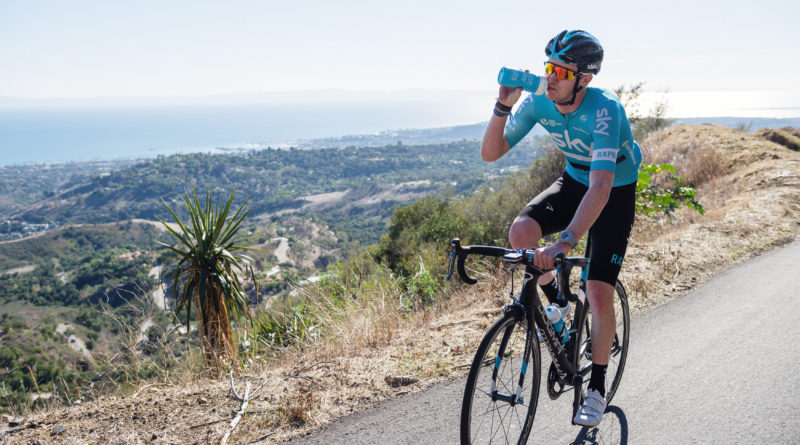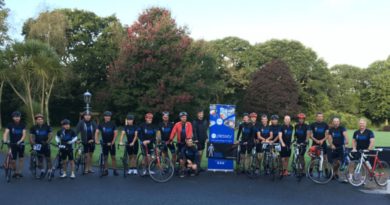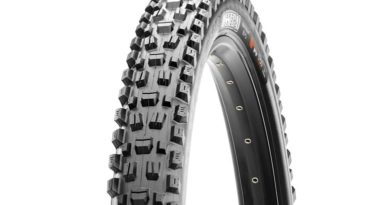Science in Sport CEO explains why giving away 800,000 gels is “good business”
Over the coming months CyclingIndustry.News will be drawing on experts in the sports nutrition market in a bid to help the retail business better understand the product and importantly, how to sell it. To kick off the series we sat down with Science in Sport CEO Stephen Moon to find out, among other things, why free sampling is so important to developing brand loyalty…
Science in Sport hasn’t always been sat at the summit of cycling’s sports ![D4S_9711[9]](https://cyclingindustry.news/wp-content/uploads/2017/04/D4S_97119.jpg) nutrition market. Indeed, with its closest competition having just been acquired by some very well-funded businessmen, it may be that the UK-made nutrition label soon faces some substantially bolstered competition. But CEO Stephen Moon, who bought the business from Tim Lawson (himself a sports scientist and owner of Stealth), has reasons to be cheerful; business is good and looks set to get better.
nutrition market. Indeed, with its closest competition having just been acquired by some very well-funded businessmen, it may be that the UK-made nutrition label soon faces some substantially bolstered competition. But CEO Stephen Moon, who bought the business from Tim Lawson (himself a sports scientist and owner of Stealth), has reasons to be cheerful; business is good and looks set to get better.
As it stands, 2016 saw a doubling on 2015’s “strong” online business and in Q1 of 2017 the firm is 100% up (online) on the same period the prior year. Two thirds of that trade is attributed to cyclists with the remainder coming largely from the running segment. Admittedly an immensely multi-channelled business, half of the firm’s trade now stems from online sales, a quarter from exports and the remainder divided up between independent stores, chains and grocers.
“There’s a role for everyone,” outlines Moon. “The Independent bike dealer sector remains crucial, but it of course has faced a number of challenges, none insurmountable, but there has been an element of burying one’s head in the sand by some. We’ve noticed closures with increasing regularity, although I think it’s beginning to steady. For those reasons we’ve been careful to assess how we can assist drive customers to what remains an important sector for us. There’s bricks and mortar exclusive pack sizes and promotions. We’ve also made moves to closely align our own campaigns with promotions dealers can run simultaneously so no one gets caught out.”
The 800 stores within the independent bike sector have delivered mixed results in the past year, says Moon, who outlines that while distribution to bike shops rose by 30%, revenues dipped by 8% in 2016 to £1.2 million.
When Moon took on the business in June of 2011, Science in Sport had no online sales presence, yet still delivered a £4 million annual turnover. Forecasting a £15 million turnover for 2017, things have moved forward at quite a pace in recent years and in particular since the business relocated its headquarters to London’s Hatton Garden.
“The move here was quite deliberate,” says Moon. “Simply, we needed Dot Com talent and by being here we’re able to recruit some of the best. We’ve a big new product pipeline due in 2017 and plans to open an office in Spain and more than likely an Asia office serving South Korea, Japan and China too, so it’s important we’re well connected. The Science in Sport brand is recognised globally now and a big part of that is down to the fact we sell product to over half the pro peleton.”![SiS Energy range shot[1]](https://cyclingindustry.news/wp-content/uploads/2017/04/SiS-Energy-range-shot1.jpg)
Demand then is high, but have you ever wondered why so many samples are given away and how the firm can turn a profit doing so?
“That’s actually one of the better bits of business we do,” says Moon with a smile. “We give away 800,000 gels a year at present, which on the face of it must seem awful business, but we measure the returns closely. I won’t go into detail here, but if you think about it in terms of people logging on for free gels, they can either pay £3.99 postage, or add a few other bits to their basket to get free postage at a tenner. Owning our own factory is critical here in flexing this muscle against competitors. In theory our Nelson factory could produce £50 million worth of product in a year. Our gel machine has four lanes, one of which could service the rest of the gel industry’s needs. Therefore we don’t fret too much about giveaways, in particular as the customer retention rate is high.”
Customer retention is of course crucial to the independent bike shop, but with so many channels to market why should they invest in Moon’s business?
“We’ve done a lot of research on this and found that as far as Tesco customers go, two thirds were existing science in sport consumers. Obviously that’s a fear we’re keen to address, but the truth is customers seemingly buy based on convenience, hence why it’s important to make nutrition an accessible feature of your store. Our retail only tubs are designed to be a comfortable high street carry, while those available online are not.”
Of course it could be argued that the wider you spread your brand the better a job at marketing the label. With a £4 million spend on marketing, including pro teams sponsorships, it’s hard to argue that the brand isn’t pushing for every sale.
“All of British Cycling’s 100,000 members have had an introduction pack to get people into the brand. To support our approach in the U.S. we’ve also linked with USA Cycling, so there’s little chance those looking will miss us,” says Moon. “I expect we shall extend our relationship with Team Sky. They’re very professional to work with and we believe the return on investment is great. Soon there will be a plethora of new educational content developed alongside the riders which will give consumers further insight into the athlete’s nutrition plans and how these can relate to them. We’ll have a new website going live in May dedicated to educational material.”
With professional partnerships come a topic that “could still ruin the business”. Stringent anti-doping rules have great implications to sports nutrition, so it’s no surprise to hear Moon talk passionately about prevention of such contamination.
![D4S_7476[9]](https://cyclingindustry.news/wp-content/uploads/2017/04/D4S_74769.jpg) “We can trace everything right back to the field,” he starts. “It’s still very common for people to be tapped for banned substances and in the last 18 months we’ve picked up three incidences where banned substances could have snuck into batches. But the testing, both in house and at our independent test house in Suffolk, is stringent. If you walked in with $1 billion in dollar notes and one had a trace of cocaine on, we’d find it. Most often it’s herbals from the Asian markets and whey proteins that are widely used that end up flagged. We’re able to trace our supplier’s suppliers though. The worst possible headline I could receive is to have Andy Murray or Chris Froome banned because of one of our products.”
“We can trace everything right back to the field,” he starts. “It’s still very common for people to be tapped for banned substances and in the last 18 months we’ve picked up three incidences where banned substances could have snuck into batches. But the testing, both in house and at our independent test house in Suffolk, is stringent. If you walked in with $1 billion in dollar notes and one had a trace of cocaine on, we’d find it. Most often it’s herbals from the Asian markets and whey proteins that are widely used that end up flagged. We’re able to trace our supplier’s suppliers though. The worst possible headline I could receive is to have Andy Murray or Chris Froome banned because of one of our products.”
Now sold to over 100 countries around the globe and with a U.S. drive, starting in San Francisco, underway, Moon is eyeing exports as an area for growth. Where viable, the IBD will remain part of that, he insists, adding that later this year a click and collect functionality will be trialed to further drive customers to destination stores.
Science in Sport is available to the UK bike dealer via nine wholesalers, including Madison, Moore Large and Harris Active, among others.



